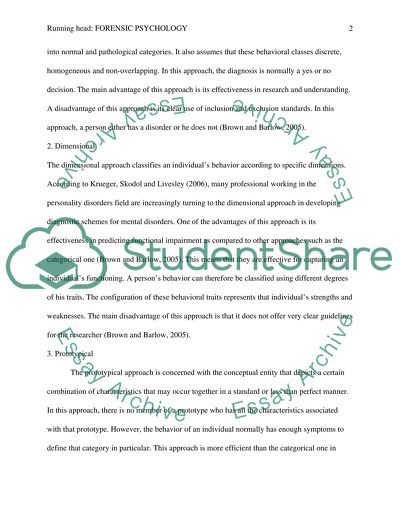Forensic psychology Essay Example | Topics and Well Written Essays - 500 words - 2. Retrieved from https://studentshare.org/miscellaneous/1573146-forensic-psychology
Forensic Psychology Essay Example | Topics and Well Written Essays - 500 Words - 2. https://studentshare.org/miscellaneous/1573146-forensic-psychology.


